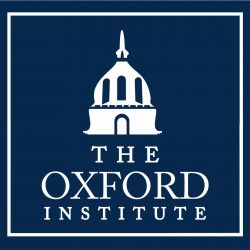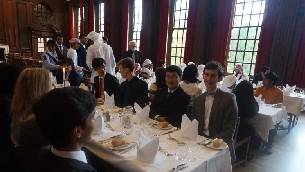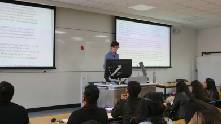PHYSICAL SCIENCES
Oxford has been the torchbearer of scientific thinking and method for centuries. Equipped with the state of the art facilities for scientific research and inquiry, Oxford remains a magnet for world’s top scientists and scholars. Students will take inspirations from the likes of Stephen Hawking and Dorothy Hodgkins to explore courses in physical sciences.
MATHEMATICS
Mathematics includes the study of topics encompassing quantity, structure, space, change and other properties.
PHYSICS
The physics module is designed to comprehensively introduce the fundamental ideas of physics and provide the necessary theoretical background, tools and methods to rigorously approach scientific problems. This course will show the relevance of physics to the understanding of the world around us and provide students with solid foundations necessary to succeed at undergraduate level.
CHEMISTRY
Students are introduced to the basic principles of the subject and are then expected to explore the way they apply in particular circumstances and so that students can then use them to solve problems, both practical and theoretical. The three strands of the subject, physical, inorganic and organic chemistry are developed together in an integrated way with the emphasis on the unifying concepts.
BIOLOGY
This unit will enable students to develop essential knowledge and understanding of the key concepts of biology, to gain an appreciation of topical issues and to develop an awareness of scientific methods. The course focuses on seven principal topics ranging from cellular structure to metabolism and photosynthesis. The organisms used to illustrate these topic areas will mainly be drawn from mammals, flowering plants and microorganisms, such as bacteria and viruses.
MEDICINE
Medicine is a branch of science that deals with the practice of the diagnosis, treatment, and prevention of disease. It involves a variety of health care practices devised to maintain and restore health by the prevention and treatment of illness in human beings.
ENGINEERING
Engineering aims to conceive, model and scale an appropriate solution to a problem or objective and involves the application of scientific, economic, social, and practical knowledge in order to design, build, and maintain structures, machines, devices, systems, materials and processes. Engineering is a very vast field and this course aims to provide students an introduction to a number of subfields within Engineering in order to better equip them to take it up as a career and to enable them to make an informed choice about the sub-field they would like to specialise in.
INFORMATION TECHNOLOGY
Information technology (IT) involves the use of computers and telecommunications equipment to store, retrieve, transmit and manipulate data, often in the context of a business or other enterprise. This course aims to deepen students' understanding of how Information Technology works and how it is used in organisations.
STATISTICS
Statistics involves the study of the collection, organization, analysis, interpretation, and presentation of data. Statistics has gained importance as a distinct branch of mathematical science due to its empirical roots and its focus on applications.









